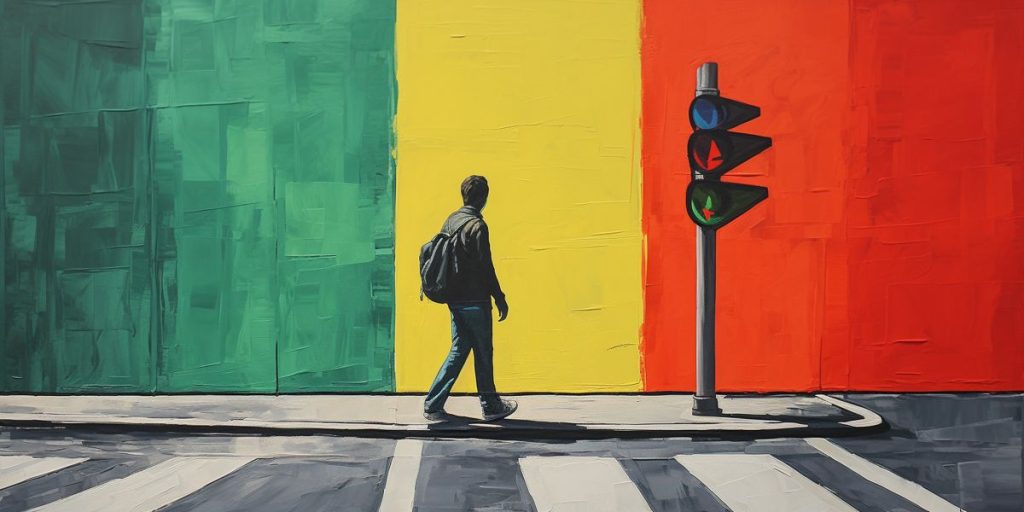A new bill proposes severe penalties, including up to six months in prison or a fine of up to €1,700, for vandalizing traffic signs. The aim is to deter acts of defacement and protect road safety by emphasizing the potential consequences of such actions.
What are the penalties for vandalizing traffic signs under the proposed bill?
Under the proposed bill, vandalizing traffic signs is an offense that could result in up to six months in prison or a fine of up to €1,700. The bill aims to safeguard road safety by deterring acts of defacement, even minor ones, through severe legal consequences.
Culprits Beware: Defacing Traffic Signs May Lead to Incarceration
In a significant move to bolster road safety, discussions in the legislative assembly have concluded around a bill aiming to penalize those who dare to vandalize traffic signs. Disy MP Nikos Georgiou, the proponent of the bill, expressed satisfaction with the unanimous support from key authorities, including the police, the department of public works, and the attorney-general’s office. The bill, once passed, would make alteration or defacement of road traffic signs an offense punishable by incarceration and substantial financial penalties.
The ramifications of the proposed law are severe. Offenders caught writing on, counterfeiting, or distorting traffic signs could face up to six months in prison or a fine reaching €1,700. The bill’s reach extends to even minor defacements that do not necessarily impact the sign’s clarity or meaning. The intent is clear: to discourage such acts decisively by underscoring their potential consequences.
Legal Implications and Public Safety
Beyond the personal penalties to offenders, the proposed bill casts a wider safety net for all road users. Legislators underscored the potential legal liability of the state in cases where a traffic incident could be linked to a defaced or altered road sign. This aspect of the bill underlines the critical nature of clear and unmolested signage for the prevention of traffic accidents and the protection of life and property on the roads.
MP Georgiou emphasized the broader intent of the legislation, which is to fortify the safety of the road network and send a powerful message that defacing traffic signs is an unacceptable behavior. Despite queries from the press regarding how offenders would be identified and tracked, details were sparse. The primary focus remains on prevention through the deterrent effect of the law.
Enhanced Enforcement and Deterrence
The discussion on the enforcement of such a law is crucial. While it is clear that the focus is on deterrence, the practical aspects of identifying and prosecuting offenders will be key to the bill’s effectiveness. With the advancements in surveillance technology and social media’s omnipresence, it can be inferred that law enforcement agencies might deploy a mix of traditional investigative techniques and modern digital tools to monitor and apprehend those flouting the law.
Moreover, the introduction of this legislation could potentially lead to greater public awareness campaigns. It is not just about penalizing the wrongdoers but also about educating the public on the importance of maintaining the integrity of traffic signs for everyone’s safety. With increased awareness, it is hoped that instances of such vandalism will decrease, making the roads safer for all users.
Future Roadmap and Legal Process
As we await the formal passage of this bill into law, it’s worth noting that it forms part of a broader initiative to maintain and enhance road safety standards. The bill is poised to undergo further scrutiny and possibly some adjustments before it is enshrined into law. The process may involve public consultations and additional rounds of discussion in the House transport committee.
The proposed measures align with global road safety practices, where the protection of traffic sign integrity is a priority. Such legislative actions reflect an understanding that road safety doesn’t only hinge on the behavior of drivers and pedestrians but also on the reliability and clarity of the road infrastructure they depend on daily.
1. What are the penalties for vandalizing traffic signs under the proposed bill?
Under the proposed bill, vandalizing traffic signs is an offense that could result in up to six months in prison or a fine of up to €1,700. The bill aims to safeguard road safety by deterring acts of defacement, even minor ones, through severe legal consequences.
2. How does the proposed bill aim to protect road safety?
The proposed bill aims to protect road safety by emphasizing the potential consequences of vandalizing traffic signs. It seeks to deter acts of defacement by imposing severe penalties, such as up to six months in prison or a fine of up to €1,700. The bill recognizes the critical role of clear and unaltered traffic signs in preventing traffic accidents and protecting lives and property on the roads.
3. How will offenders be identified and tracked under the proposed bill?
Details regarding how offenders will be identified and tracked under the proposed bill are currently sparse. However, it can be inferred that law enforcement agencies may deploy a combination of traditional investigative techniques and modern digital tools, such as surveillance technology and monitoring of social media. The focus is primarily on prevention through the deterrent effect of the law.
4. What is the broader initiative behind the proposed bill?
The proposed bill is part of a broader initiative to maintain and enhance road safety standards. It aligns with global road safety practices that prioritize the protection of traffic sign integrity. The aim is not only to penalize wrongdoers but also to educate the public on the importance of maintaining the integrity of traffic signs for everyone’s safety. The bill may undergo further scrutiny, including public consultations and discussions in the House transport committee, before it becomes law.

